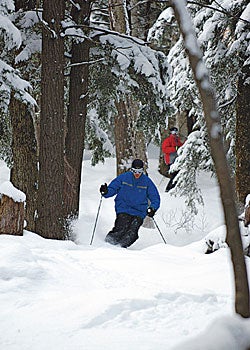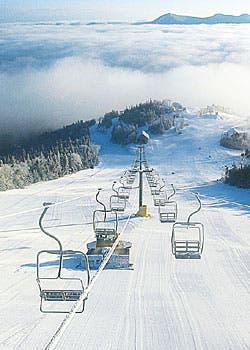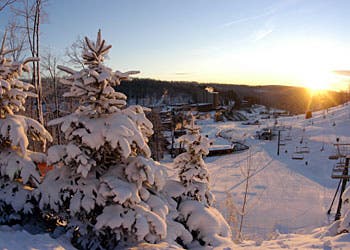The Truth: Freeskier Marc-Andre Belliveau

Earlier this decade, Marc-Andre Belliveau was one of freeskiing’s rising stars. But on April 3, 2006, during a heli-shoot near Nelson, British Columbia, Belliveau lost his line in flat light and tumbled into a field of jagged rocks. The fall broke his back and injured his spinal cord near the T12 vertebra, leaving him paralyzed from the waist down. Now 28, Belliveau skis as much as possible and makes no apologies for his fellow Quebecois. Here’s what he has to say:
As a pro athlete, people want you to do crazy shit all the time. You have to have a feeling for what you can do and listen to yourself if it’s too much.
It’s a double-edged sword, because you have to push if you want to improve, but that involves risk. If you only do what you know you can do, you’ll never become better. You have to push it a little harder every time.
There’s no insurance for professional skiers. You’re on your own if you decide to be a pro. That’s the dark side of the sport. I have insurance with my truck, if I get disabled while driving it. But for pro skiers, there’s nobody to back you up.
When I got hurt, people were pressuring the athletes like crazy. I shot with TGR for eight years and never got hurt. That day, we were pressured by people outside the team. That’s when it happened. Always listen to your inside, even if people call you a pussy.
The first run on a sit ski was so hard. I looked back up the mountain and said, “This is going to suck so bad.” By the end of the day I was saying, “This is pretty cool.”
The terrain has changed—sitting down low I can’t go everywhere I used to. But this is only my second year on it. I’m sure I’ll be able to take on steeper stuff.
It’s never bad to make a change in life. You think you can’t live without something. Then you realize you can.
You don’t want to be an asshole. It travels quickly. Without being a sucker you need to be nice to everyone and respect the people who were there before you. The skiing world is a family—after a while you see that everything’s connected.
I got really stressed out competing when I was on the Quebec provincial moguls team in my teens. But when you’re filming, it’s totally different. You get to choose your group of friends. If you don’t get the shot one day, you sit back and wait for the next day.
What can I say? French Canadians always do funny stuff. We like to drink and party. I don’t think I changed anyone’s mind about French Canadians. Someone made that reputation long before I came along.
How do I feel about my injury? It happened. Right now, it’s not reversible. But I try to not let it stop me from doing anything. I just keep doing what I did before. It’s just harder to get up stairs.
Skiing hasn’t lost its magic, not at all. I can still do the parts I love most—being around the mountain, talking in the lift line, ending up with a beer at the end of the day. I didn’t lose any of my love for skiing, none.
-SKIING MAGAZINE, November 2008

